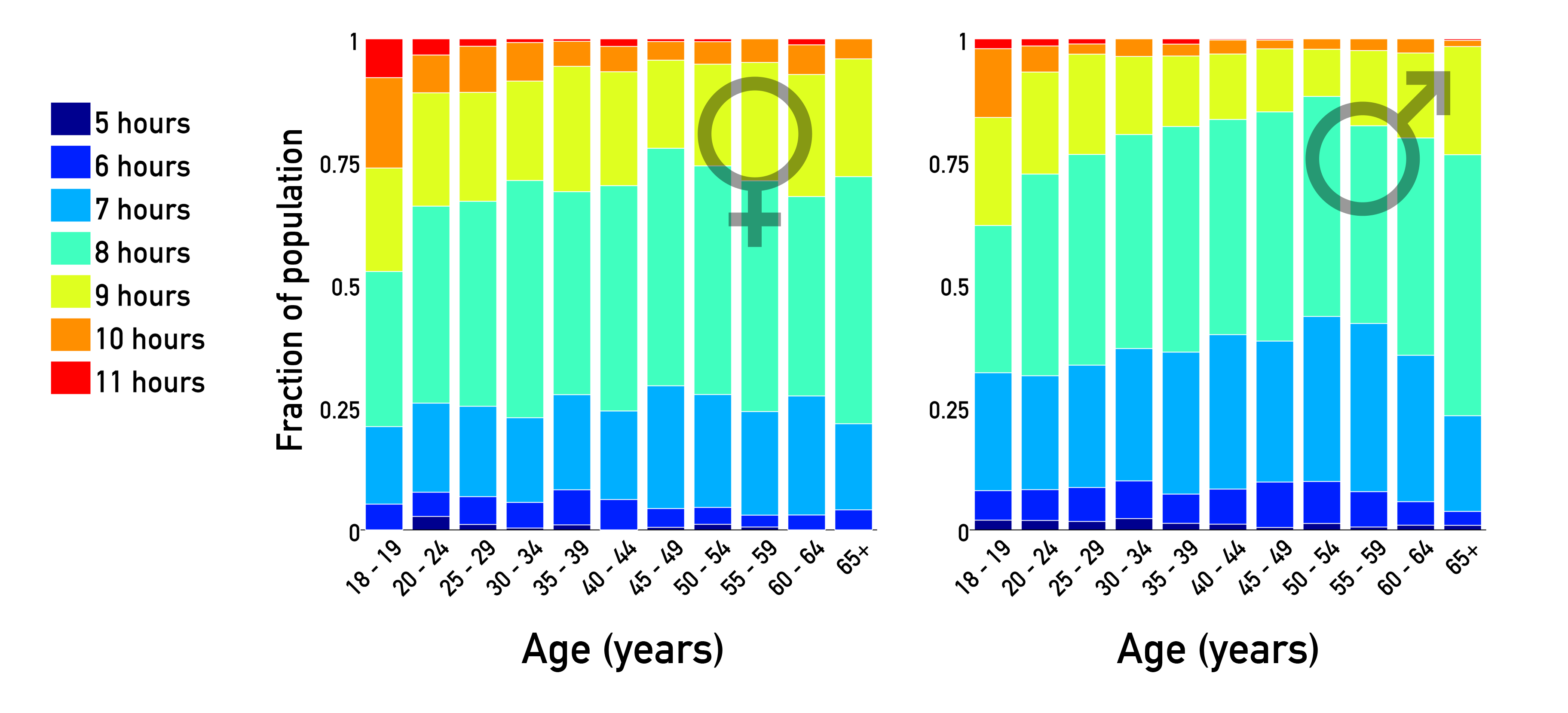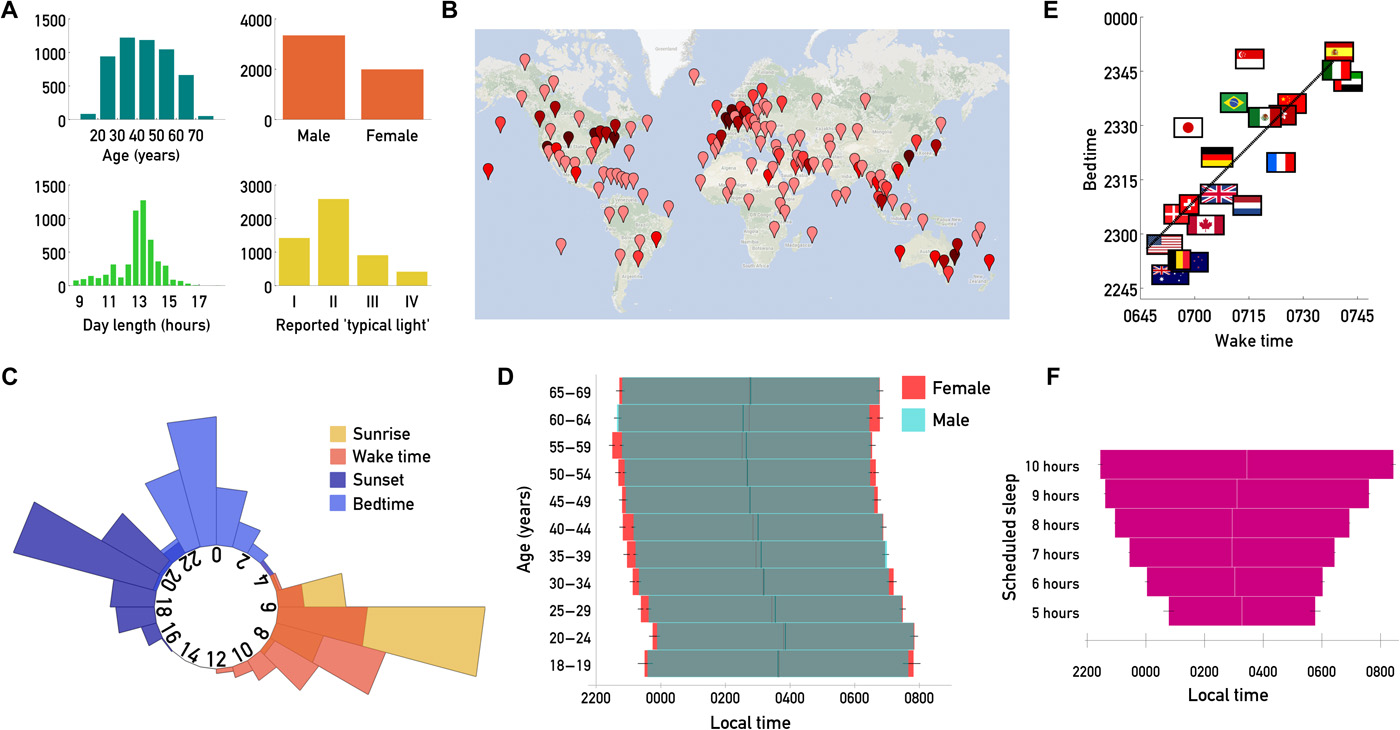How do social and biological factors affect sleep patterns?

The study began with the fact that a group of scientists from the University of Michigan released the Entrain mobile application in 2014, which allows to cope with the jetlag, that is, the time zone change syndrome. Users were given the opportunity if they wanted to share their data with a group of scientists. During this time, data was collected on thousands of people from 100 countries. The researchers took into account age, gender, ambient lighting, bedtime and waking hours, the country of origin of the research participant, and the goal was to find out the relationship between social, biological factors and sleep patterns, according to engadget .
The results showed that cultural attitudes may turn out to be stronger than biological rhythms, which noticeably affects how much a person goes to bed. Morning duties affect the rise time, but do not fully define it. “We found a strong influence on the time of awakening from a man’s biological clock, not his alarm clock,” said Professor Daniel Forger of the University of Michigan. In addition, social habits (for example, late dinners, early breakfasts) have an impact.
Scientists received quite interesting information from the application: for example, in Singapore and Japan, people sleep on average 7 hours and 24 minutes (the lowest figure), whereas in the Netherlands - 8 hours and 12 minutes (the highest figure), in France 8 hours, and Great Britain is slightly less than 8 hours (Russia is not on the list).
')
The researchers note that the difference in 48 minutes is very significant, since the lack of sleep, even for half an hour, can have a big impact on cognitive function and health.

The researchers also found that people who spend most of the day in daylight tend to go to bed earlier, and women, especially those aged 30-60, sleep on average half an hour longer than men. The least sleep middle-aged men.
There are many factors why so many people are deprived of sleep, for example, work and children. Regardless of the reason, the study shows that many adults are increasing the “debt” of sleep, which affects not only their productivity in the workplace, but also their health.
Professor Akilesh Reddy from the University of Cambridge, commenting on these data, noted that all previous studies conducted in the laboratory, could not reveal such patterns.
"The main result of the research is that our biological clocks program us to perform certain functions that we are unable to perform, since we are guided by social norms." It is already known that irregular sleep for those who work in shifts, leads to various diseases.
In addition to the findings themselves, the researchers say that the work demonstrates that mobile technology can be a reliable way to collect large amounts of data at a very low price.
Source: https://habr.com/ru/post/372219/
All Articles